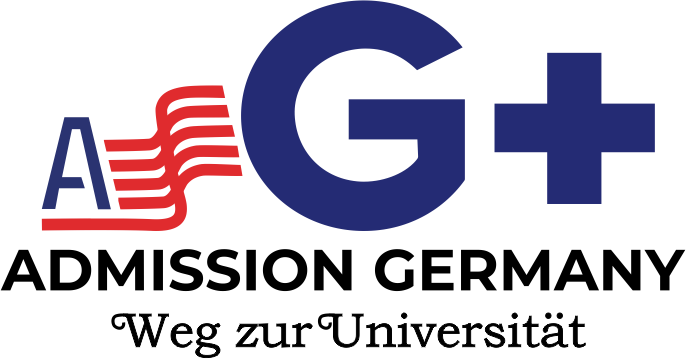Germany has one of the most advanced healthcare systems in the world — and it is continuously looking for skilled medical professionals from abroad. Doctors, nurses, pharmacists, physiotherapists, and caregivers from many countries are welcomed to fill the growing demand for qualified workers.
However, before you can start working in any healthcare profession in Germany, you need more than just the right degree or license — you must also prove that you have sufficient German language skills. Communication is at the heart of healthcare. Doctors need to understand patients’ symptoms, nurses must document treatments accurately, and all professionals must communicate effectively with colleagues and patients.
This article explains in detail what the German language requirements are for different healthcare professions and how international professionals can meet them — step by step.
1. Why Language Proficiency Is Crucial in German Healthcare
Working in healthcare means dealing with people in vulnerable situations — patients who might be in pain, confused, or anxious. In these moments, clear communication becomes a matter of safety.
The German medical system places strong emphasis on language because mistakes in understanding or documentation can have serious consequences. You are expected not only to speak fluently but also to understand medical terminology, fill out clinical records, and participate in team discussions in German.
For this reason, German authorities require all healthcare professionals — whether doctors, nurses, or pharmacists — to demonstrate both general and specialized (medical) language competence before they can receive a license to practice.

2. The CEFR Framework — Understanding Levels (A1–C2)
Germany follows the Common European Framework of Reference for Languages (CEFR) to assess language skills. The levels range from A1 (beginner) to C2 (native-like proficiency):
- A1–A2: Basic communication, simple phrases, and short exchanges.
- B1: Intermediate; can handle daily work and simple discussions.
- B2: Upper-intermediate; can communicate clearly, understand detailed texts, and express ideas with confidence.
- C1: Advanced; can handle complex discussions, technical subjects, and professional documentation.
- C2: Mastery level; near-native fluency.
For healthcare professionals, the minimum requirement is usually B2, but in some regulated professions like medicine or dentistry, C1 (medical German) is mandatory.
3. Language Requirements by Profession
Language requirements differ depending on the healthcare role you are applying for. Below is a breakdown of the typical standards in Germany.
🩺 Doctors (Medical Practitioners)
If you want to work as a doctor in Germany, you must apply for a medical license (Approbation).
To obtain this, you must provide proof of:
- General German language skills at level B2 (CEFR), and
- Medical German skills at level C1 (CEFR).
In addition to submitting a B2 certificate, you will have to pass a Fachsprachprüfung (Specialized Medical Language Exam) conducted by the Ärztekammer (Medical Chamber) of the state where you apply.
This test evaluates your ability to:
- Communicate with patients (taking history, explaining treatment).
- Communicate with colleagues (case discussions).
- Write and interpret medical reports and documentation.
Passing this test is mandatory for all international doctors who obtained their degree outside Germany or the EU.
🧑⚕️ Nurses and Care Professionals
For nursing professionals, the required level is generally B2 German.
This level ensures you can:
- Understand and explain medical instructions.
- Write and read nursing documentation.
- Communicate effectively with patients and doctors.
Some employers may initially accept B1 if you are enrolled in a language improvement course, but full professional recognition (Berufsanerkennung) requires B2.
Many nursing candidates take the telc Deutsch B1-B2 Pflege or Goethe-Zertifikat B2 Pflege — specialized exams focusing on healthcare situations, such as taking patient histories, giving medication, and recording symptoms.
💊 Pharmacists
To work as a pharmacist, you must also have strong German skills because you need to explain medications, dosage, and potential side effects to patients.
The requirements are similar to those for doctors:
- General German: B2
- Professional German: C1 (Fachsprachprüfung for pharmacists)
The recognition process for foreign pharmacy degrees is regulated, and proof of language skills is mandatory before you can receive the Approbation.
🦷 Dentists, Psychotherapists, and Other Specialists
Professions such as dentists, psychotherapists, and speech therapists often require even higher levels of communication, since much of the work depends on direct verbal interaction with patients.
Therefore, most federal states require:
- B2 general German, and
- C1 specialized German (medical or therapeutic field).
🏥 Physiotherapists and Allied Health Professionals
For professions like physiotherapists, occupational therapists, or midwives, the general rule is B2 German proficiency.
While you might not need to pass a medical language exam, your B2 certificate must come from a recognized institution (Goethe, telc, ÖSD, TestDaF, or DSH).
Communication with patients is still essential, so a good command of everyday and professional vocabulary is expected.
4. Differences Across German States (Bundesländer)
Germany is a federal country, and each of the 16 states has its own licensing authority.
This means that requirements can vary slightly from one state to another.
For example:
- In Bavaria, doctors must pass a C1 Fachsprachprüfung conducted by the Bavarian Medical Chamber.
- In North Rhine-Westphalia, nurses must show B2 German and sometimes pass a short internal assessment.
- In Berlin or Hamburg, authorities may require a recognized B2 certificate before issuing a work permit or starting the recognition process.
Therefore, it’s crucial to check the specific rules of the state where you plan to live or work. You can find this information on the Recognition in Germany website.
5. Types of Accepted Language Certificates
When applying for recognition or a license, you must present official certificates. The most commonly accepted exams in Germany are:
- Goethe-Institut Certificates (B2, C1, C2)
- telc Deutsch B2 or C1 Medizin / Pflege
- TestDaF (Test Deutsch als Fremdsprache)
- ÖSD (Österreichisches Sprachdiplom Deutsch)
- DSH (Deutsche Sprachprüfung für den Hochschulzugang)
Certificates from unaccredited schools or online courses are usually not accepted. Always ensure that your exam is conducted by an officially recognized testing body.
6. How to Fulfil the Language Requirements: Step-by-Step
Meeting German language requirements can seem challenging, but it’s entirely achievable with a structured approach.
Step 1: Start Learning Early
If you’re still studying or waiting for degree recognition, start learning German as soon as possible. Aim for at least B1 before arriving in Germany so you can adapt faster.
Step 2: Enrol in a Professional Language Course
After reaching A2/B1 level, switch to a German for Medical Professions course. These courses teach you vocabulary related to anatomy, patient communication, and clinical documentation. Many are available both online and in-person across Germany.
Look for programs like:
- telc Deutsch B1-B2 Pflege (for nurses)
- Deutsch für Ärzte (for doctors)
- Fachsprache Medizin (C1 preparation)
Step 3: Get Certified
Take your B2 or C1 exam at a recognized center. If you are a doctor or pharmacist, apply for the Fachsprachprüfung (medical language test) through the Medical Chamber of your target state.
Step 4: Submit Certificates During Recognition Process
When you apply for recognition (Anerkennung) or a work permit, include your language certificates with your application documents. Missing or invalid certificates can delay your approval.
Step 5: Keep Practicing Daily
After certification, continue practicing German — watch medical videos in German, read healthcare journals, and talk to native speakers. The goal is not only to pass an exam but to communicate confidently in real-life situations.
7. The Fachsprachprüfung — What You Need to Know
For medical professionals (doctors, dentists, pharmacists), the Fachsprachprüfung is a critical step.
This specialized language test checks your ability to use German in real clinical scenarios.
It typically has three parts:
- Doctor–Patient Conversation: Taking a patient’s medical history and explaining diagnosis or treatment.
- Documentation: Writing a medical report or case summary.
- Doctor–Doctor Discussion: Presenting the case to a colleague in professional language.
You must pass this exam to receive the Approbation. If you fail, you can usually retake it after a few months.
8. Common Mistakes to Avoid
- Underestimating the C1 requirement: Many professionals assume B2 is enough. For doctors, C1 medical German is mandatory.
- Taking unrecognized language courses: Only certificates from recognized institutions (Goethe, telc, ÖSD, DSH, TestDaF) are accepted.
- Ignoring pronunciation and listening skills: Communication is not just grammar — clarity and comprehension are crucial in healthcare.
- Waiting until arrival in Germany: Start learning German in your home country to save time and money.
- Not practicing medical vocabulary: The Fachsprachprüfung focuses heavily on professional terms and clinical conversation.

9. How Long Does It Take to Reach the Required Level?
Language learning speed depends on your background and consistency.
Here’s an approximate timeline for full preparation:
| Starting Level | Target Level | Estimated Study Time (Full-time) |
|---|---|---|
| Beginner (A1) | B1 | 4–6 months |
| B1 | B2 | 3–4 months |
| B2 | C1 | 4–6 months |
So, reaching C1 medical German may take 10–14 months of serious study if you start from scratch.
10. The Benefits of Mastering German
Beyond meeting legal requirements, mastering German has enormous advantages:
- Better job opportunities: Hospitals prefer candidates who can communicate smoothly.
- Higher salaries: Language fluency often comes with better pay and promotion prospects.
- Easier integration: You’ll adapt faster to the workplace and German culture.
- Professional respect: Colleagues value clear, confident communication.
- Personal satisfaction: Understanding patients and helping them in their language is deeply rewarding.
11. Useful Resources
- Recognition in Germany Portal — Official government information about recognition and licensing.
- Goethe-Institut — German language courses and exams.
- telc gGmbH — Specialized exams for nursing and medical German.
- Federal Ministry of Health (BMG) — Guidelines on healthcare professions.
12. Final Thoughts
Language proficiency is not just a formality — it is the foundation of a safe and effective healthcare environment.
For international doctors, nurses, and healthcare professionals, meeting Germany’s language requirements shows professionalism, commitment, and respect for patients.
The general rule is:
- B2 for most healthcare roles (nurses, therapists)
- C1 for doctors, dentists, pharmacists, and specialists
Start early, choose the right course, get certified, and continue practicing daily. Once you achieve the required level, you’ll find that working in German healthcare is not just a career move — it’s a fulfilling experience that connects you deeply with the people you care for. 🇩🇪💙

